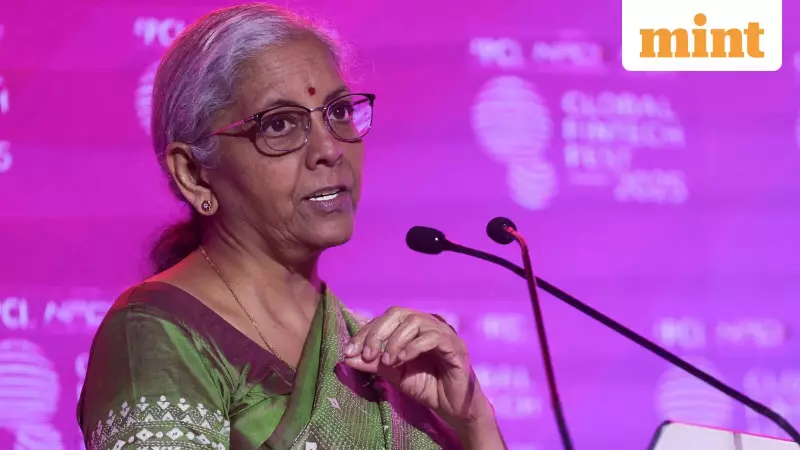
In a landmark address that could reshape India's financial landscape, Finance Minister Nirmala Sitharaman unveiled a comprehensive roadmap for public sector banks, emphasizing strategic mergers, robust regulatory frameworks for artificial intelligence, and simplified GST processes for MSMEs.
Banking Sector Transformation Takes Center Stage
Speaking at the prestigious SBI Banking and Economics Conclave, Sitharaman highlighted the remarkable turnaround of India's public sector banks, which have emerged stronger and more resilient following the government's comprehensive reform agenda. The minister emphasized that strategic consolidation through mergers has created banking behemoths capable of competing on a global scale while maintaining their developmental mandate.
"Our public sector banks have transformed from being perceived as a liability to becoming pillars of strength for the Indian economy," Sitharaman declared, pointing to improved financial metrics and enhanced operational efficiency across the banking spectrum.
Artificial Intelligence: The New Regulatory Frontier
In what marks a significant policy shift, the Finance Minister announced that the government is actively developing a regulatory framework for artificial intelligence. This move positions India among the pioneering nations proactively addressing AI's transformative potential while mitigating associated risks.
"As AI continues to reshape financial services and beyond, we recognize the urgent need for a balanced regulatory approach that fosters innovation while ensuring consumer protection and financial stability," Sitharaman explained during her keynote address.
MSME Sector Gets GST Relief
In a major boost for small and medium enterprises, the Finance Minister revealed that the government is working on significant GST reforms specifically tailored to ease compliance burdens for MSMEs. These measures are expected to:
- Simplify filing procedures and reduce paperwork
- Provide clearer classification guidelines
- Enhance input tax credit mechanisms
- Streamline refund processes
This initiative aims to unlock the full potential of India's MSME sector, often described as the backbone of the economy, by creating a more business-friendly tax environment.
RBI's Evolving Role in a Digital Economy
Sitharaman praised the Reserve Bank of India's adaptive regulatory approach, noting that the central bank has successfully balanced its traditional monetary policy responsibilities with the demands of an increasingly digital financial ecosystem. The RBI's proactive stance on digital payments, fintech innovation, and financial inclusion received special mention as critical enablers of India's economic growth story.
Positioning India for Sustainable Growth
The Finance Minister's comprehensive address painted a picture of an economy poised for sustained expansion, with a reformed banking sector acting as a key catalyst. The convergence of regulatory clarity, technological adoption, and sector-specific reforms creates a powerful foundation for India's continued economic ascent on the global stage.
As India continues its journey toward becoming a $5 trillion economy, these banking and regulatory reforms are expected to play a pivotal role in driving inclusive growth, fostering innovation, and maintaining financial stability in an increasingly complex global environment.






